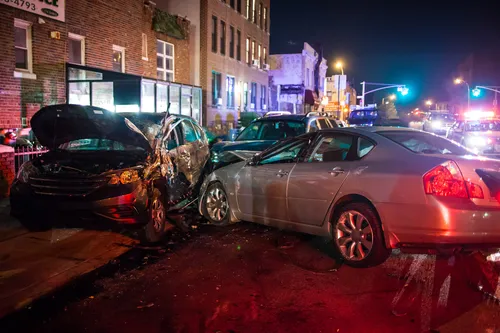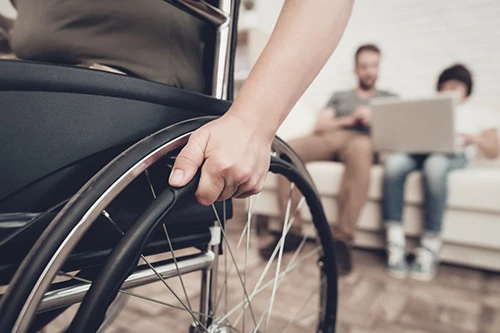A car accident can be traumatizing and overwhelming. In the 2019 Yearly Snapshot report, posted by the Insurance Institute for Highway Safety (IIHS) in March 2021, over 33,244 car accidents occurred, with 51,247 vehicles and 36,096 fatalities. Many accident victims’ first reaction, regardless of fault, is to apologize to the other party or to each other. Unfortunately, that’s one of the worst statements to make at such a time.
The problems that come with admitting fault can be disastrous when you’re seeking damages for your injuries, for a variety of reasons of which will be outlined below.
Reasons why you shouldn’t admit fault for a car accident
Whatever you do, avoid the kneejerk reaction of apologizing to the other driver involved. There are many reasons why, including:
Apologizing can be taken as an admission of fault. Any apology can result in partial coverage of damages rather than full coverage. Worst case scenario is that you could outright be denied for all damages if you explained why the accident happened (for instance, you changed lanes too quickly and didn’t see the car behind you). If you apologize, that apology may be included in the police report and both insurance companies will use that apology against you, as their main goal is to pay out as little as possible.
You don’t know the factors that led to the accident. Even if you are to blame for the accident, you may not be the only one at fault. Leading to the accident could have been factors out of your control. Any of these factors could have major influence in the accident:
- Your vehicle suffered a manufacturing defect not recalled by the car’s maker
- Inattentive or negligence driver
- Poorly designed roads
- Disastrous weather effects (e.g., flooding)
- Defective stoplights
- Incorrectly placed or missing road signs
- Other motor vehicle accidents
Because any of these potential factors could influence the car accident, it’s best to let investigators, police, and your personal injury attorney determine the events leading to the accident.
Speaking with an insurance company could harm your chances of proper compensation for your injuries. Instead, let your personal attorney speak with the insurance company to avoid making any mistakes. These companies could convince you to apologize and even make incriminating statements that would harm your payout.
What to say instead of apologizing after an accident:
- Ask if the other driver and passengers are okay or need help. Also ask if they need an ambulance or emergency medical attention.
- If the driver and passengers are okay, politely ask to exchange contact and insurance information.
- Finally, offer to call the police for guidance and to file a police report.
Consult with a personal injury attorney for more information
Whatever you do after a motor vehicle accident, do not apologize to the other driver. Not only can an apology suggest that you’d be at fault, but various other causes could also impact the accident. You may not have even caused the accident, but you could be incriminated and have your claim for personal injury compensation denied.
Immediately after your accident you should seek medical attention for any injuries you’re suffering from. After receiving treatment, you should contact a personal injury attorney not only to know of your options after suffering from a car accident but to have them represent you when you’re filing a claim for compensation. A personal injury attorney will know exactly what to say when speaking with the insurance company, and they will gather the necessary evidence needed to help you win compensation for damages, including:
- Pain and suffering
- Lost wages
- Lost time at work
- Loss of quality of life
- Medical bills
- Physical and mental therapy bills
That way, you’ll instead be able to focus on your rest and recovery from your injuries.

